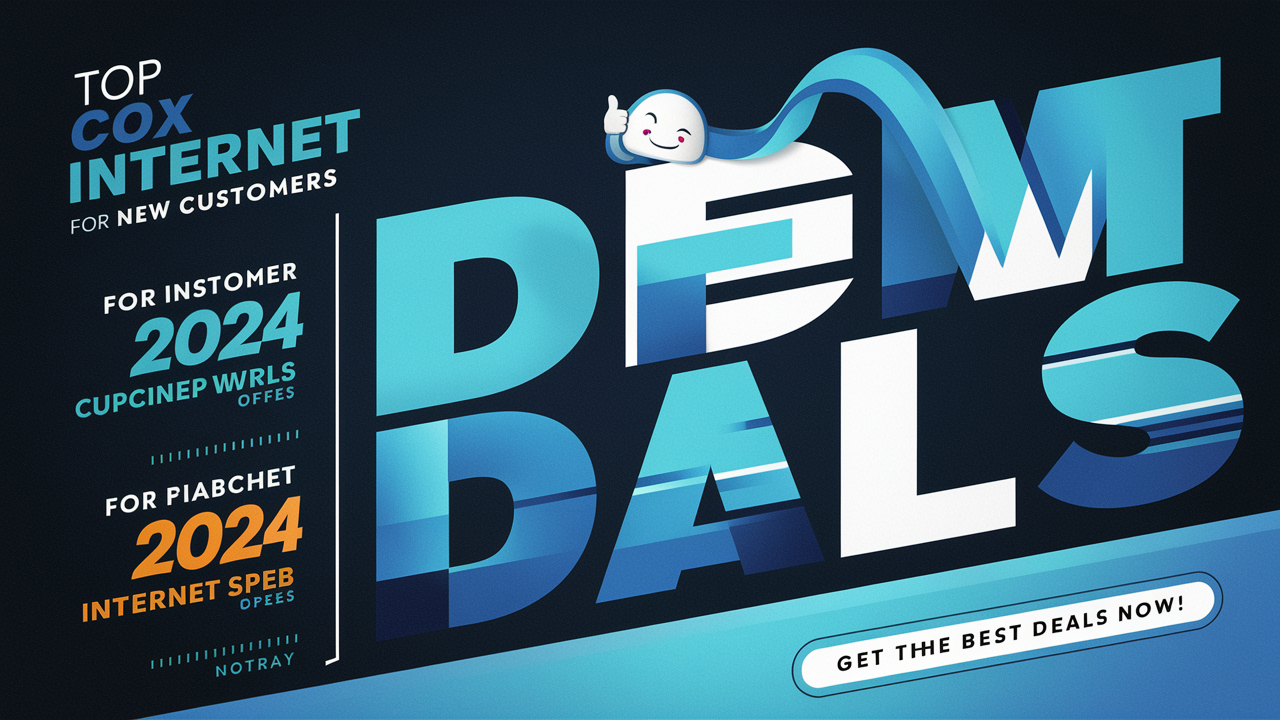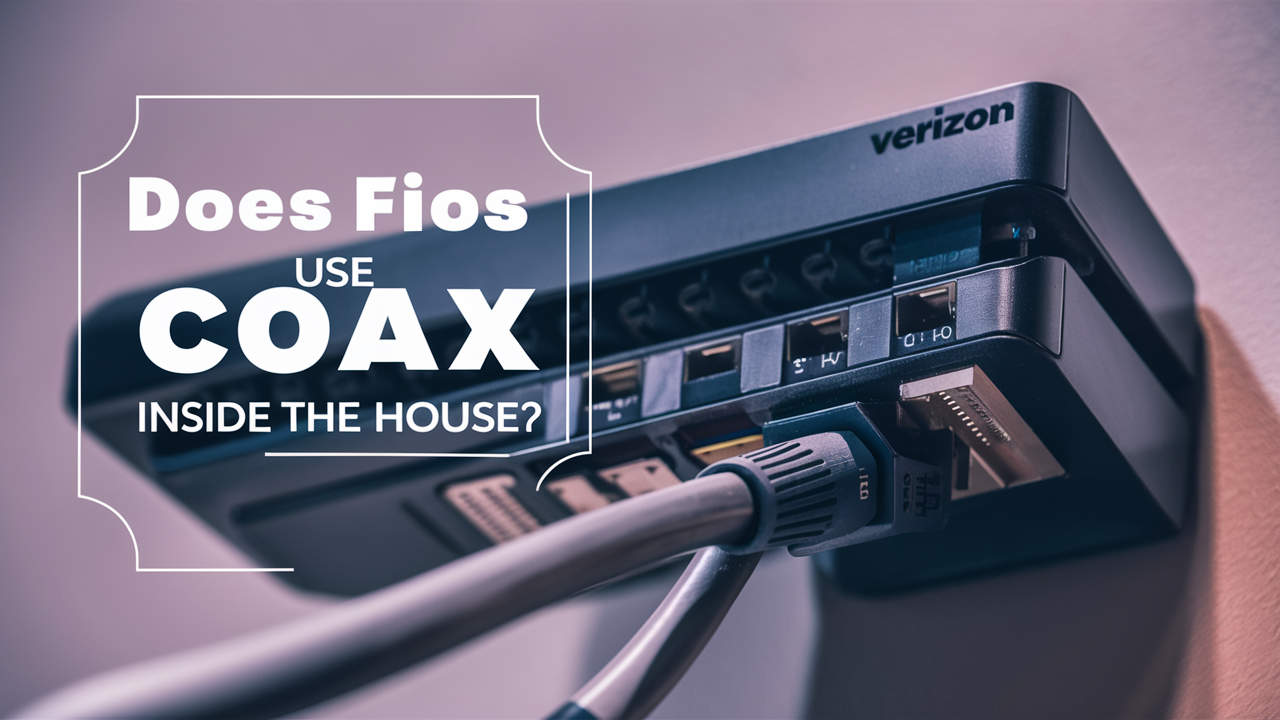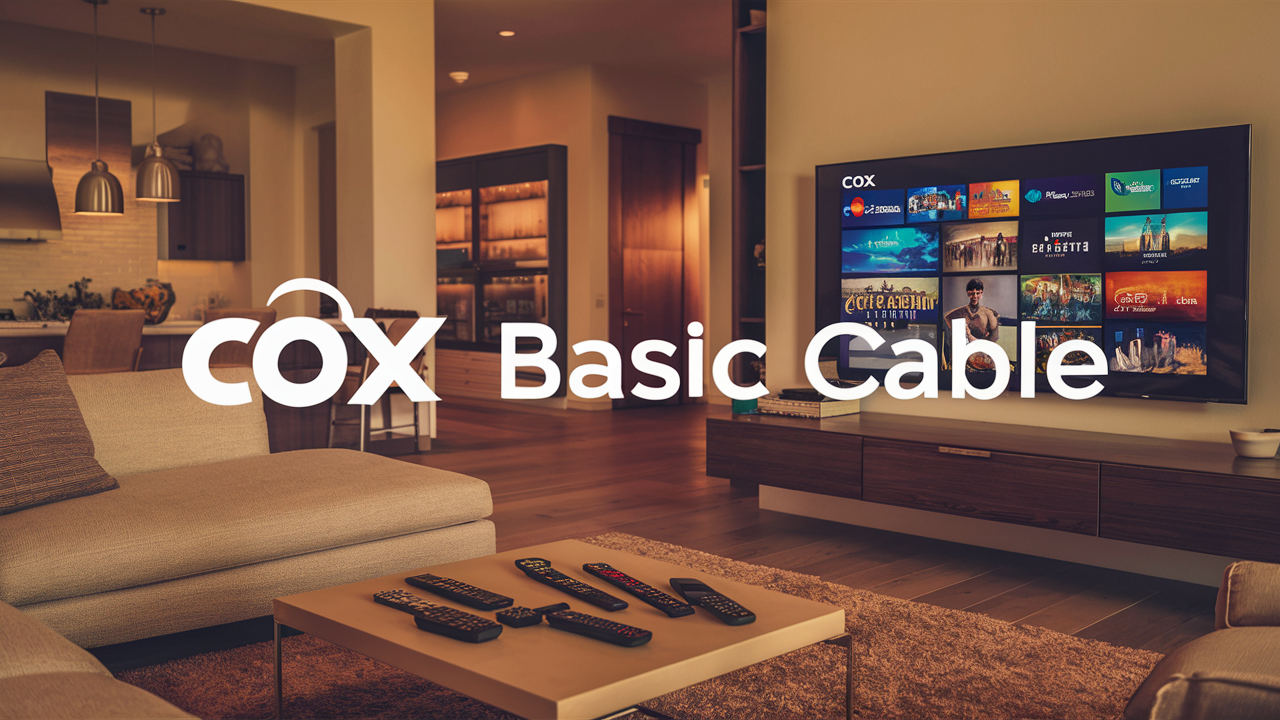Does Cox have an Unlimited Data Plan?

Navigating internet plans can be complex, but for those asking "Does Cox have an Unlimited Data Plan?", the answer is nuanced. While Cox doesn't offer a straightforward "unlimited" data plan in the traditional sense for all services, they do provide options that effectively eliminate data caps for many users, especially with their Fiber Internet service. This guide clarifies Cox's data policies and alternatives for unlimited usage.
Cox Unlimited Data Plan: The Definitive Answer
For many internet users, the term "unlimited data" is a non-negotiable feature. When searching "Does Cox have an Unlimited Data Plan?", the immediate answer requires a bit of unpacking. Cox Communications, a major internet service provider, doesn't universally offer a single, blanket "unlimited data" plan across all its offerings. However, they do provide specific services and plans that effectively grant unlimited data usage, particularly with their high-speed fiber optic internet. This distinction is crucial for consumers looking to avoid data caps and potential overage charges. This comprehensive guide will delve into Cox's data policies, highlight their effectively unlimited options, and provide strategies for managing data usage to ensure a seamless online experience in 2025.
Understanding Cox Internet Data Policies
Cox's approach to data allowances has evolved over time, and it's essential to understand the current policies to make an informed decision. Historically, many cable internet providers, including Cox, have imposed monthly data caps on their standard internet plans. These caps were designed to manage network congestion and encourage users to select plans that better matched their typical usage. However, with the increasing demand for high-bandwidth activities like streaming 4K video, online gaming, and remote work, these caps have become a point of contention for many consumers.
Cox Data Allowances and Overage Fees
For most of Cox's traditional cable internet plans, a monthly data allowance is applied. As of 2025, these allowances typically range from 1 terabyte (TB) to 2 TB per month, depending on the specific plan speed and region. For instance, a standard plan might come with a 1 TB data cap, while a faster tier could offer 1.25 TB or 1.5 TB. These figures are subject to change and can vary based on promotional offers or specific service agreements.
When a customer exceeds their allocated data allowance, Cox historically implemented overage charges. These charges could be a set fee per gigabyte (GB) over the limit, or they might result in a temporary throttling of internet speeds until the next billing cycle. The exact overage policy and fees have also varied, but they often amounted to a significant increase in the monthly bill if data usage was consistently high. For example, exceeding a 1 TB cap by 200 GB could incur substantial additional costs.
It's important to note that Cox has been phasing out these strict overage charges in many areas, especially for their higher-tier plans. Instead, they often offer a grace period or a temporary speed reduction once the data allowance is reached. However, the underlying allowance still exists for these plans, meaning that while you might not face direct overage fees, your experience could be impacted if you consistently go over. This is why understanding your specific plan's data policy is paramount.
The Fiber Internet Advantage: Effectively Unlimited
This is where the answer to "Does Cox have an Unlimited Data Plan?" becomes clearer for a significant segment of their customer base. Cox's Fiber Internet service, often marketed under names like "Cox Gigablast" or similar high-speed fiber offerings, typically comes with truly unlimited data. This means there are no monthly data caps, and users can stream, download, upload, and game to their heart's content without worrying about exceeding a limit or incurring extra charges.
Fiber optic technology offers superior bandwidth and capacity compared to traditional cable or DSL. This inherent capability allows providers like Cox to offer unlimited data without the same network management concerns that plague their cable infrastructure. For users who are heavy internet consumers, opting for Cox's fiber service is the most straightforward way to achieve an "unlimited data" experience.
The availability of Cox's fiber service is geographically dependent. It is primarily deployed in areas where Cox has invested in upgrading its network infrastructure to fiber optics. Therefore, while the *option* for unlimited data exists, it may not be accessible to everyone within Cox's service footprint.
Cox Mobile Unlimited Plans
Beyond their home internet services, Cox also offers mobile phone plans, and here, "unlimited" is a more common offering. Cox Mobile operates on the Verizon network, providing a range of plans that include unlimited talk, text, and data. These plans often have different tiers of "unlimited," which can include:
- Unlimited Basic: Offers a set amount of high-speed data (e.g., 20 GB) after which speeds are reduced for the remainder of the billing cycle.
- Unlimited Plus: Provides a larger amount of high-speed data (e.g., 50 GB) before reduced speeds apply.
- Unlimited Premium: Typically offers the most high-speed data (e.g., 100 GB or more) before throttling.
While these mobile plans are marketed as "unlimited," it's crucial to understand the distinction between "unlimited high-speed data" and "unlimited data with reduced speeds after a certain threshold." For most typical mobile users, these plans provide ample data. However, for those who frequently use their mobile device as a hotspot for multiple devices or engage in heavy mobile data consumption, the reduced speeds after the high-speed data allowance can be a limiting factor. These mobile plans are often bundled with Cox internet services, potentially offering cost savings.
Strategies to Avoid Data Caps with Cox
If you are not in a region with Cox Fiber or are considering a plan that might have data allowances, there are several strategies to effectively avoid hitting your data cap and the associated issues.
Choosing the Right Cox Internet Plan
The most effective way to avoid data caps is to select a plan that either has no cap or a cap that significantly exceeds your typical usage. As established, Cox's fiber plans are the primary option for true unlimited data. If fiber is not available, carefully review the data allowances for Cox's cable internet plans. Consider your household's internet habits:
- Heavy Users: Households with multiple users streaming 4K video, engaging in extensive online gaming, frequent large file downloads/uploads, or using the internet for business-critical remote work should prioritize plans with the highest data allowances or, ideally, fiber.
- Moderate Users: Households that primarily use the internet for web browsing, email, social media, and standard-definition or HD streaming might find that lower-tier plans with moderate data caps (e.g., 1 TB) are sufficient, especially if they monitor their usage.
- Light Users: Households with minimal internet use might find even smaller data allowances adequate.
When comparing plans, always look for the stated data allowance. If a plan doesn't explicitly state "unlimited" or a very high number (like 2 TB or more), assume it has a cap. You can often find this information on Cox's website or by speaking with a customer service representative. If you are on a plan with a data allowance, it's worth checking if upgrading to a higher tier or a fiber plan is financially feasible and offers a significant improvement in data flexibility.
Understanding Your Data Usage
Knowing how much data you consume is critical for managing your internet plan. Cox provides tools to help customers monitor their data usage. You can typically access this information through your online Cox account portal or via the Cox mobile app. These tools usually offer a real-time or near-real-time breakdown of your data consumption for the current billing cycle.
Understanding what activities consume the most data is also key. Here's a general breakdown of data usage for common online activities (figures are approximate and can vary based on resolution, encoding, and device):
- Web Browsing: 50-150 MB per hour
- Email: Minimal, unless sending/receiving large attachments
- Social Media (scrolling, basic posts): 100-300 MB per hour
- Music Streaming (e.g., Spotify, Apple Music): 50-150 MB per hour (depending on quality)
- Standard Definition (SD) Video Streaming (e.g., Netflix, YouTube): 0.7-1 GB per hour
- High Definition (HD) Video Streaming (e.g., Netflix, YouTube): 2-3 GB per hour
- 4K Ultra HD Video Streaming (e.g., Netflix, YouTube): 7-8 GB per hour
- Online Gaming (downloading/updating games): Can range from a few GB to over 100 GB per game
- Online Gaming (playing a game): 50-300 MB per hour
- Video Conferencing (e.g., Zoom, Teams): 1-2.5 GB per hour
- Large File Downloads/Uploads: Varies significantly based on file size. A 10 GB movie download uses 10 GB.
By monitoring your usage and understanding these figures, you can identify which activities are the biggest data consumers in your household and make adjustments if necessary.
Managing Your Data Consumption
Once you understand your usage patterns, you can implement strategies to manage them:
- Stream in Lower Resolutions: If you're not in a fiber-unlimited plan and are approaching your data cap, consider streaming video in HD instead of 4K, or even SD, to significantly reduce data consumption.
- Download Content When Possible: For long commutes or areas with spotty internet, download movies, music, or podcasts beforehand when connected to your home Wi-Fi.
- Limit Background Data Usage: Many apps and devices consume data in the background for updates, syncing, or notifications. Review your device settings and disable background data refresh for non-essential apps.
- Use Wi-Fi Whenever Possible: Ensure all your devices are connected to your home Wi-Fi network for internet access. Avoid using cellular data for large downloads or streaming unless absolutely necessary.
- Monitor Connected Devices: Ensure that only authorized devices are connected to your Wi-Fi. An unsecured network can lead to unexpected data usage by others.
- Adjust Gaming Habits: Large game downloads and updates can consume a significant amount of data. Consider scheduling these during off-peak hours or on days when you are less likely to exceed your allowance.
- Consider a Wi-Fi Extender or Mesh System: While not directly related to data caps, ensuring a strong Wi-Fi signal throughout your home can prevent devices from trying to connect to cellular data when Wi-Fi is weak.
For households that consistently struggle to stay within their data limits on non-fiber plans, even with these management techniques, the most practical solution remains upgrading to a plan with a higher data allowance or, if available, Cox's fiber internet service.
Cox Internet Plans and Their Data Implications (2025)
Cox offers a variety of internet plans, each with different speed tiers and, consequently, different data policies. As of 2025, the landscape looks something like this:
Cox Gigablast and Unlimited Data
Cox Gigablast is their flagship high-speed internet service, typically delivered over a fiber optic network. This is the most reliable way to get unlimited data with Cox. Gigablast plans offer speeds up to 1 Gigabits per second (Gbps) download and often comparable upload speeds. These plans are explicitly designed for users who demand the highest performance and have no data restrictions.
Key Features of Gigablast (Unlimited Data):
- Truly Unlimited Data: No monthly data caps or overage fees.
- Extremely High Speeds: Ideal for 4K streaming, massive downloads, online gaming, and supporting many connected devices simultaneously.
- Low Latency: Crucial for real-time applications like gaming and video conferencing.
- Availability: Primarily in areas where Cox has invested in fiber infrastructure.
If you are in a Gigablast-eligible area and are concerned about data caps, this is unequivocally the plan to choose. It offers peace of mind and the best possible internet experience without worrying about usage limits.
Cox Download and Upload Speeds
Beyond Gigablast, Cox offers other internet tiers that utilize their cable infrastructure. These plans have varying download and upload speeds and, importantly, data allowances. Here's a generalized look at some common tiers and their typical data implications:
Example Plans (Data Allowances are Approximate and Subject to Change/Region):
| Plan Name (Example) | Typical Download Speed | Typical Upload Speed | Typical Data Allowance | Overage Policy (if applicable) |
|---|---|---|---|---|
| Cox Essential Internet | Up to 100 Mbps | Up to 10 Mbps | 1 TB | Potential speed throttling or grace period |
| Cox Preferred Internet | Up to 500 Mbps | Up to 10 Mbps | 1.25 TB | Potential speed throttling or grace period |
| Cox Ultimate Internet | Up to 1 Gbps (Cable) | Up to 35 Mbps | 1.5 TB | Potential speed throttling or grace period |
| Cox Gigablast (Fiber) | Up to 1 Gbps | Up to 1 Gbps | Unlimited | N/A |
Note: Actual speeds and data allowances can vary significantly by location and current promotions. Always verify with Cox directly for the most accurate information for your address.
As you can see, even the higher-speed cable plans (like Ultimate Internet) have substantial data allowances, often 1.5 TB. For many households, this is more than enough data. However, the key differentiator remains Gigablast for guaranteed unlimited usage without any potential for speed reductions due to data consumption.
Cox Bundle Deals and Data Considerations
Cox often promotes bundle deals that combine internet, TV, and phone services. When considering these bundles, it's crucial to understand how they affect your internet data. Typically, bundling services does not change the data allowance of your internet plan. If your bundled internet plan has a 1 TB data cap, it remains a 1 TB data cap, regardless of whether you also have TV or phone service with Cox.
However, some bundle promotions might offer an upgrade to a higher-tier internet plan (like Gigablast) at a discounted rate, which would then come with unlimited data. Always read the fine print of any bundle offer to confirm the specifics of the internet plan included, particularly its data allowance and speed. If your primary concern is unlimited data, ensure the internet component of the bundle meets that requirement.
Alternatives to Cox for True Unlimited Data
If Cox's fiber service is unavailable in your area, or if you're looking for other providers that offer unlimited data on their standard plans, you might consider alternatives. The availability of these providers is also location-dependent:
- Other Fiber Providers: Many cities have multiple fiber internet providers (e.g., AT&T Fiber, Verizon Fios, Google Fiber, CenturyLink Fiber). Fiber optic technology is the most common platform for truly unlimited data plans.
- Some Cable Providers: While Cox has a data cap policy on many of its cable plans, some other cable internet providers in different regions might offer unlimited data or higher data allowances on their comparable plans. Research local cable companies.
- DSL Providers: While generally slower, some DSL providers might offer unlimited data plans, though speeds can be a limiting factor for heavy users.
- Fixed Wireless or Satellite Internet: These options can be more variable. Some satellite providers (like Starlink) offer unlimited data, but performance can be affected by weather and satellite availability. Fixed wireless providers vary widely in their data policies.
When exploring alternatives, always verify the provider's current data policy, including any potential for speed throttling after a certain usage threshold, even if they advertise "unlimited." Read reviews and check coverage maps for your specific address.
Making the Decision: Is Cox Right for Your Unlimited Needs?
So, does Cox have an Unlimited Data Plan? The answer is a qualified yes. For customers in areas served by Cox's fiber optic network, such as their Gigablast service, the answer is a definitive yes – these plans offer truly unlimited data with no caps or overages. This is the ideal solution for heavy internet users who want complete freedom online.
For customers on Cox's traditional cable internet plans, the situation is more nuanced. While Cox has been moving away from strict overage fees in many areas, these plans still have monthly data allowances. Exceeding these allowances can lead to reduced speeds, impacting your online experience. Therefore, if "unlimited data" is a strict requirement and fiber is not an option, you must carefully assess your household's data consumption. By understanding your usage, choosing the plan with the highest possible data allowance, and actively managing your consumption, you can often avoid issues even on capped plans.
Cox Mobile offers unlimited talk, text, and data plans, but these also come with high-speed data thresholds before speeds are reduced. It's important to distinguish between home internet and mobile data policies.
Ultimately, the best approach is to visit the Cox Communications website, enter your address to check service availability, and review the specific plans and their data policies for your location. If fiber is available, it's the clear path to unlimited data. If not, weigh the data allowances of their cable plans against your household's needs and consider the impact of potential speed reductions if you consistently exceed the allocated data. For many, the provided data allowances on higher-tier cable plans are sufficient, but for true, uncompromised unlimited usage, fiber is the way to go.
In conclusion, while Cox may not have a singular "unlimited data plan" that applies to every customer, they provide the essential service for those who need it through their advanced fiber optic offerings. For the rest, understanding the existing data allowances and implementing smart usage habits are key to enjoying a seamless internet experience. Always prioritize checking your specific service area for the most accurate plan details and to make the best decision for your household's connectivity needs in 2025 and beyond.





